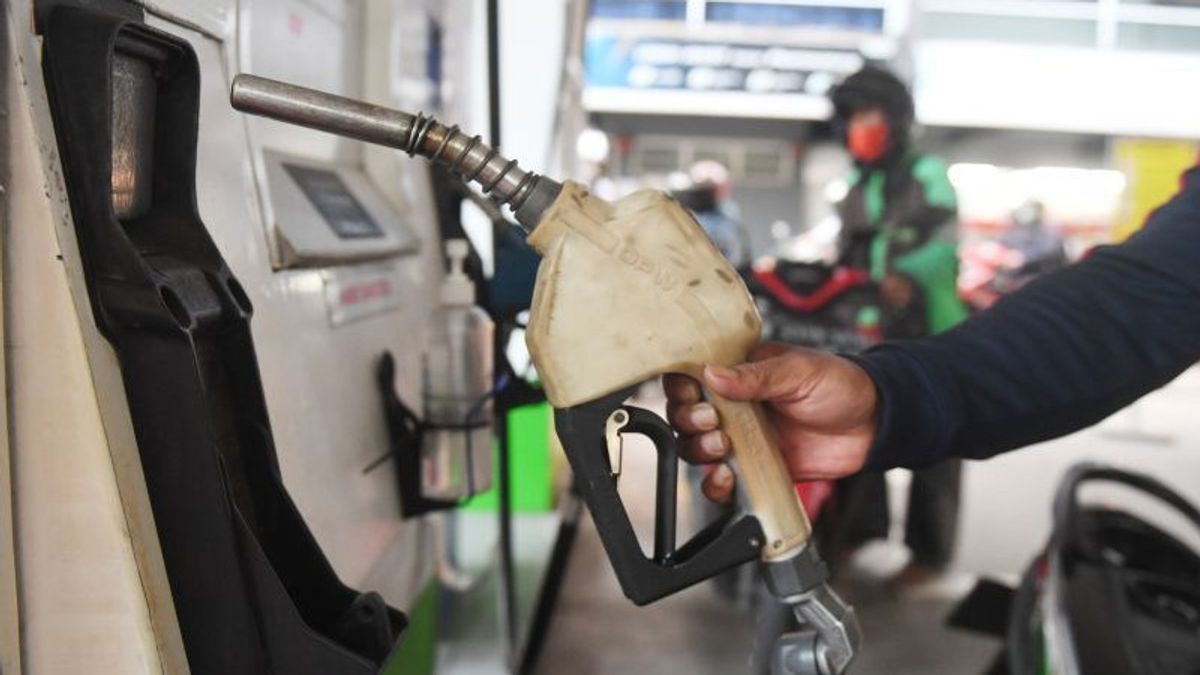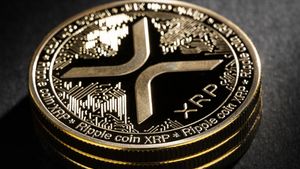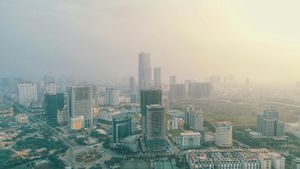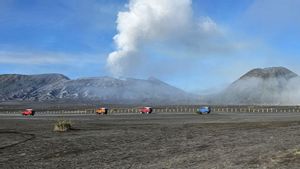YOGYAKARTA The government plans to limit subsidized fuel, such as Pertalite and Solar, considering that the Indonesian State Expenditure and Expenditure Budget (APBN) is no longer able to support energy subsidies, including subsidies for fuel oil (BBM) this year.
According to Finance Minister Sri Mulyani Indrawati, the subsidized fuel quota targeted in this year's APBN is predicted to expire in October.
"If we look at the volume of consumption (BBM-ed) following over the past eight months, the quota will run out in October, if consumption remains the same," Sri Mulyani said on Friday, August 26, 2022, quoted from Antara.
At the same time, continued Sri Mulyani, energy compensation which reached Rp502 trillion this year will also expire in October 2022.
"What is happening now, with the economic recovery, consumption and subsidies still high, diesel and pertalite consumption is estimated to far exceed what is in the state budget," said Sri Mulyani.
In addition to limiting subsidy fuel, another option to reduce the burden on the state budget due to energy subsidies is to increase the price of pertalite and diesel.
According to the Dean of the Faculty of Economics and Business, University of Indonesia (FEB) UI, Teguh Dartanto, the provision of fuel subsidies needs to be evaluated. The reason is, this can reduce the fiscal burden.
"In my opinion, the evaluation of fuel subsidies deserves to be done because it can reduce the fiscal burden," said Teguh, Monday, August 29.
Teguh assesses that the impact of inflation is quite burdensome for the community even though fuel has not increased. This can be seen from the increase in the price of a number of basic necessities in the market.
"This means, in terms of social protection or social cushioning, although there has been no evaluation of fuel prices, the price of basic necessities has increased," he said.
Teguh does not deny that there will be a negative impact when subsidies are reduced and fuel prices are increasingly expensive. However, he said it could be overcome by the government's way of preparing a social protection scheme.
He said the social protection scheme would later maintain purchasing power because most of Indonesia's economy depends on public consumption, as well as to maintain positive momentum for Indonesia's economic recovery.
"To overcome the negative impact, the government must prepare a social protection scheme or compensation for the poor and vulnerable to food and energy," said Teguh.
Another step the government can take is to provide a special mechanism for community members to volunteer as recipients of social assistance. This will help the distribution of social assistance more targeted and reach.
"I have always pushed for a mechanism, for example on demand application for social assistance. This means that people who really suffer from not being registered are allowed to register. From there there is verification," said Teguh.
Different things were conveyed by the Director of the Center of Economics and Law Studies (Celios) Bhima Yudhistira. He suggested that the government use the APBN surplus for energy subsidy fillings.
According to Bhima, the government is actually enjoying a surplus of the state budget at a high price of world oil.
Throughout January to July 2022, the absorption of new energy subsidies was Rp. 88.7 trillion based on data from our State Budget. Meanwhile, the state budget is in a surplus of Rp. 106.1 trillion or 0.57 percent of GDP in the July period.
"This means that the government also enjoys increasing crude oil prices to encourage state revenue. Why was the surplus not prioritized for energy subsidy fillings?" he said when contacted by VOI, Monday, August 29.
"There should be no indication that the government does not want to significantly cut the budget that is not urgent and sacrifice energy subsidies," he continued.
As a solution, according to Bhima, the government can revise the rules to stop leakage subsidized diesels enjoyed by large-scale industries, mining and large plantations.
"By closing the diesel leak, it can save subsidized expenditure because 93 percent of diesel consumption is a subsidy type. First regulate subsidized diesel leakage in trucks that transport mining and palm oil products, rather than increasing prices and limiting subsidized fuel," he explained.
The English, Chinese, Japanese, Arabic, and French versions are automatically generated by the AI. So there may still be inaccuracies in translating, please always see Indonesian as our main language. (system supported by DigitalSiber.id)













